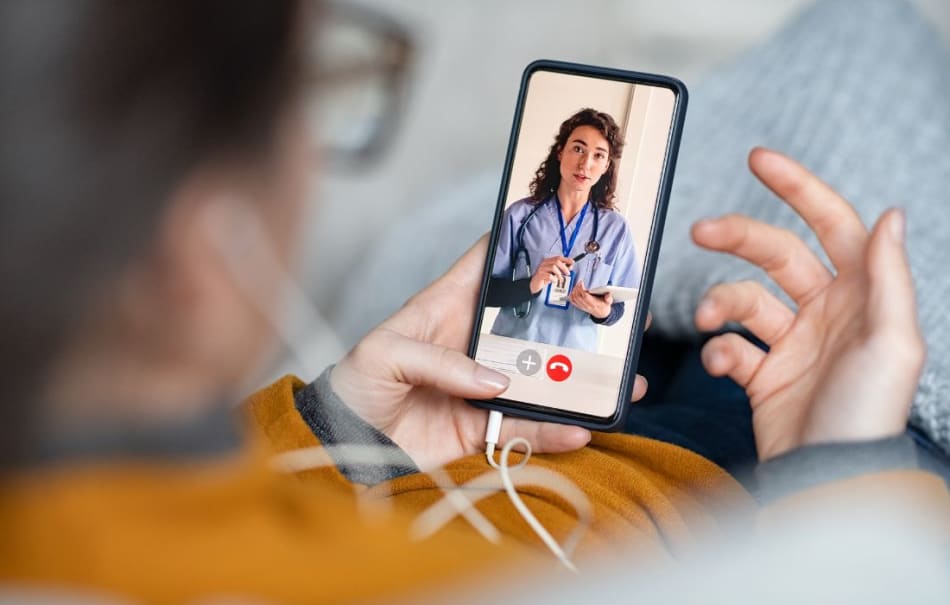




Diverse People, Diverse Perspectives
Waracle is an inclusive, inspiring & developmental home to the most talented and diverse people in our industry. The perspectives offered in our insights represent the views and opinions of the individual authors and not necessarily an official position of Waracle.
Remember 10 years ago, when everyone was starting their presentations with “Data is the new oil!”… Well, as much as our collective skins crawled, they may just have been right.
Especially in the world of health & wellness, data has driven the super human amongst us to higher levels of performance and the regular among us towards more productive and healthier every day behaviours.
As innovation in the health & wellness sector continues to focus on what petabytes of data can tell us that we didn’t already know about our bodies, our environments, our consumption and our ailments… businesses are increasingly leveraging the sensor-rich mobile consumer devices that we carry around all day everyday to find new, non-standard data points that can map to tangible human conditions.
Welcome to the age of the digital biomarker.
What is a Biomarker?
Our smartphones, wearables, and ‘smart’ apparel are embedded with a wide range of sensors, capable of generating data about our surroundings, physical activity, and even psychological health. These devices aren’t just powerful communication tools—they’re becoming an integral part of an emerging healthcare revolution, giving us a deeper, more personalised understanding of our health.
The term “biomarker” refers to a measurable indicator of a biological state or condition, such as heart rate, blood pressure, glucose levels, sleep quality and more. Traditionally, obtaining these measurements required incredibly specialised equipment and the trained eye of a medical professional. However, thanks to the advancements in mobile device sensors and digital health technologies, this landscape has changed and the humble smartphone is enough to gather really distinct and interesting data on a range of conditions and therapeutic areas.
Sensors, such as accelerometers, gyroscopes, and barometers have been primarily used for navigation, gaming, and weather forecasting. Yet, these sensors also have the potential to track health-related metrics. For instance, the accelerometer and gyroscope can monitor a user’s physical activity and detect changes in gait that could signal health issues like MS, Parkinson’s disease or fall risk in the elderly.
Heart rate sensors, now commonplace in smartwatches, have expanded their reach, moving beyond just tracking pulse during workouts. They can alert users to abnormal heart rhythms, such as atrial fibrillation, which could lead to life-threatening conditions if undetected.
Even more impressive are emerging sensors capable of measuring electrodermal activity—a signal associated with emotional states—to monitor mental health and stress.
But what digital health innovators are doing today, is just scratching the surface…

The future of digital biomarkers
The future of biomarkers, however, lies in the development of more sophisticated sensors. An example of a sophisticated sensor would be something like the glucose sensor.
Whilst glucose monitors have been around for a while, the integration of this technology into wearable devices like smartwatches is a game-changer for managing conditions like diabetes, bringing the much-needed convenience to a once slow, manual and tricky process.
Alongside different types of monitors, we will also likely see advancements in understanding the relationship between biomarker trends and underlying conditions.
An example of this is, during COVID-19 pandemic, research hypotheses have proven out that basic data from smartwatches, could detect infection from subtle changes in the user’s heart rate variability days before symptoms appear, which has opened up a new frontier for disease surveillance, making it potentially possible to flag disease outbreaks in real-time, at the individual level & societal level.
So with new data from a swathe of new sensors alongside new understanding of the value of data enrichment in creating new insights from the available data, where will all this sensor data end up?
Probably in a machine learning algorithm driving better decision making and a quicker pace. Enter AI.
Digital biomarkers in the AI age
Building intelligent digital products upon a foundation of predictive analytics will allow health solutions to scale in a way previously thought unimaginable.
Predictive algorithms will be able to use data from sensors to warn users of impending health issues. Imagine that your smart watch could alert you to a potential asthma attack, by recognising patterns in the collected biomarker data and prompt you into certain behaviours like taking a particular medication.

Of course, with these opportunities come challenges. Key among these is the question of data privacy and security. Users must have control over their health data and be confident that it is being used ethically and stored securely.
Regulatory oversight will need to adapt to ensure that these innovative tools meet the standards for medical devices and that the data is interpreted correctly, minimising the risk of false positives or negatives.
Another challenge is the digital health divide—the unequal distribution of technology. It’s crucial to ensure that these health advancements are accessible to all, not just to those who can afford the latest smartphone or wearable.
Despite these challenges, the promise of mobile device sensors driving the future of health biomarkers is enticing. As we move towards a future where healthcare is increasingly digital and personalised, the importance of these tiny sensors in our devices cannot be overstated. These sensors offer an unprecedented opportunity to turn the concept of proactive and preventive healthcare into a reality, transforming our mobile devices into powerful tools for health management and potentially saving countless lives.
In a world grappling with the challenges of an aging population and a rise in chronic diseases, these innovations couldn’t have come at a more crucial time. It’s not an overstatement to say that the future of healthcare could very well be in the palm of our hand.
Authors
Head of Marketing
Related
Article • 01 May 2025
The age of health biomarkers as clinical endpoints

Article • 30 July 2024
LLMs in Healthcare Diagnostics

Article • 09 July 2024
How to choose the right technology for your Mobile App?

Article • 29 May 2024
Digi tech Pharma & AI conference – the top 7 themes and takeaways

